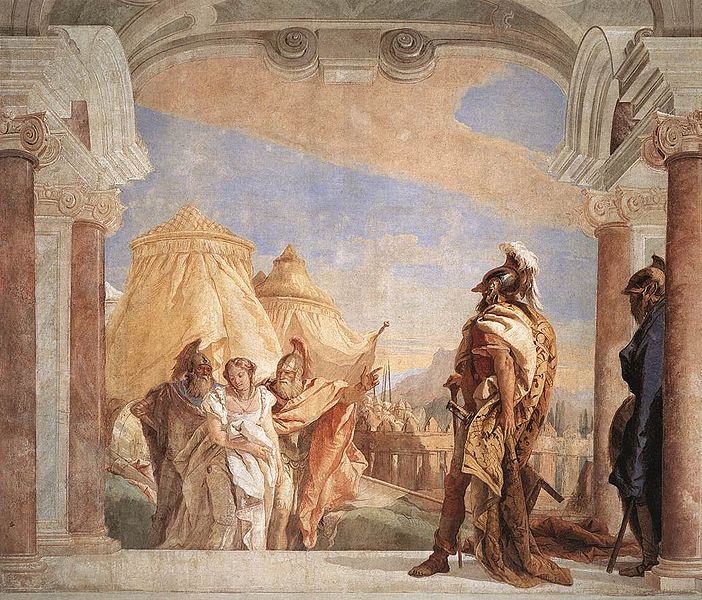BRISEUS IN GREEK MYTHOLOGY
Briseus was a minor figure who appeared in the events of the Trojan War, and whilst some call him a priest, and some a king, Briseus is most notable for being the father of Briseis.
Briseus Father of BriseisMost commonly, Briseus is place in the city of Lyrnessus, a city of the Troad near to Mount Ida, a city considered to be an ally of King Priam.
Within Lyrnessus, Briseus was named as a priest, and the father of one daughter, Briseis, and potentially three sons, by woman or women unnamed. |
|
The city of Lyrnessus became a target for the Achaean forces when Troy refused to fall to the besieging army. Thus, Achilles turned to Lyrnessus and set about sacking the city. Lyrnessus soon fell, and King Mynes was killed, leaving Briseis as a widow.
Briseis was taken as a prize by Achilles, and with the loss of his daughter, Briseus was said to have killed himself.
The similarities between Briseis and Chryseis, led to some in antiquity naming Briseus and Chryses as brothers, sons of a man named Ardys. With both Briseus and Chryses being named as priests, and both losing their daughters as prizes to the invading Achaeans.
Briseis was taken as a prize by Achilles, and with the loss of his daughter, Briseus was said to have killed himself.
The similarities between Briseis and Chryseis, led to some in antiquity naming Briseus and Chryses as brothers, sons of a man named Ardys. With both Briseus and Chryses being named as priests, and both losing their daughters as prizes to the invading Achaeans.
King Briseus
In the work attributed to Dictys Cretensis, a fictional companion of Idomeneus, called Briseus a king of the city of Pedasus, a settlement of the Lelegas. In this version it was the city of Pedasus that Achilles sacked, and it was when Briseus realised that his city would fall, that the king committed suicide.
|
|
Colin Quartermain - Briseus - 22nd September 2019
